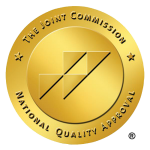Types of Wounds and Wound Treatment
Comprehensive Wound Management
Comprehensive wound management requires a physician-driven, multidisciplinary approach that directs critical resources required for evaluation and treatment to patients suffering from a non-healing wound. The Patrick T. Birrer Wound Care Centers provide highly specialized care for a variety of wounds including burns, surgical wounds, traumatic wounds, and other chronic non-healing wounds.
Over the past year, we have successfully healed 2,886 chronic, non-healing wounds with 87% of those being healing in 27 days with a patient satisfaction rate of 95%.
Some of the chronic wounds treated at the Patrick T. Birrer Wound Care Centers include:
If any of these types of wound appear, notify your physician or contact the Patrick T. Birrer Wound Care Centers.
For More Information
Covington/Grant
(859) 655-1100
Ft. Thomas
(859) 572-3830
Dearborn
(812) 496-7730
Treatment Plans
At the Patrick T. Birrer Wound Care Centers, each patient is evaluated to find any medical conditions that might block the natural healing process. Our wound care providers will coordinate your treatment with your primary care physician and specialists, understanding that wounds often require complex and long-term treatment. Results and updates will be given directly to your physician, home health agency, nursing facility, or extended care center.
In addition to treatment for your non-healing wound, the Patrick T. Birrer Wound Care Centers’ healthcare educators will also provide recommendations on how to care for your wound at home, as well as information on nutrition, physical therapy aids and diabetes management to help aid the healing process and prevent future wounds.


